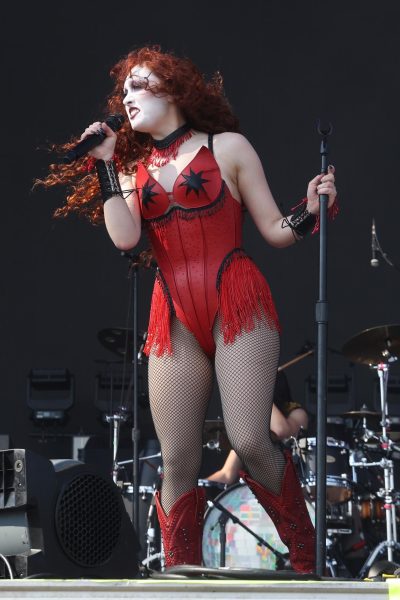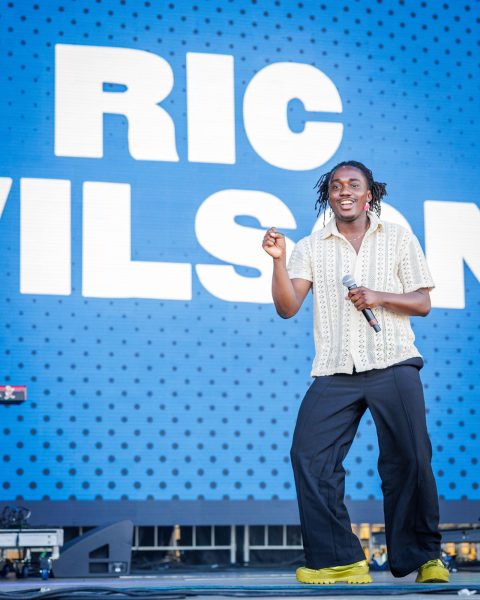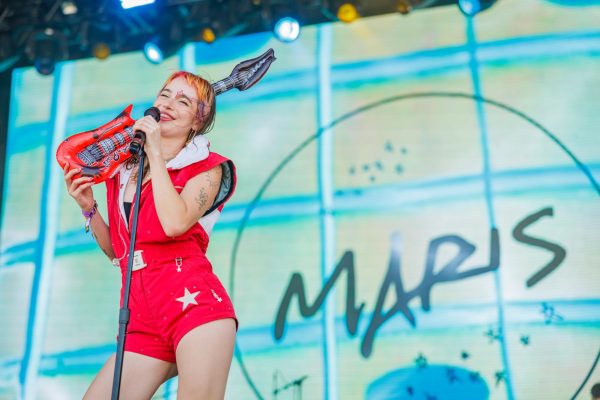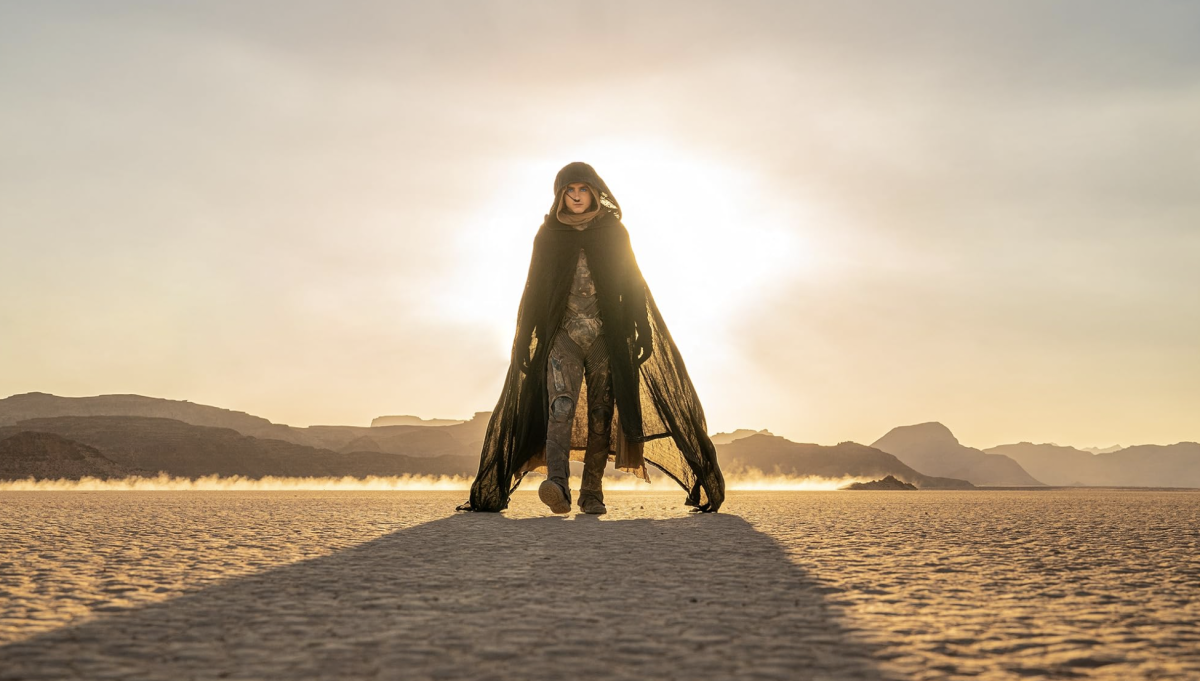The large crowds felt immeasurable as people gathered in late May to watch the artists that have influenced music over the last year. Boston Calling 2024 brought in a diverse set of acts across genres that included headliners Ed Sheeran, Tyler Childers, Megan Thee Stallion and Hozier. The music festival’s range of performers allowed for an encompassing music experience where attendees could interact with various styles of performance.
From the melodic nostalgia of Ed Sheeran, humorous commentary and vibrant vocals of Renee Rapp’s set to an energetic and outstanding display of talent from Megan Thee Stallion, the event captured a wide-ranging snapshot of the music scene. As the music industry becomes more saturated with new subgenres and ellipses the idea of genre boundaries, having a space to engage with music in its new scope is an important factor of music festivals.

Another highlight of the weekend was Chappell Roan. For Roan, Boston Calling proved to be another positive stepstone for her breakthrough earlier this spring. Though Roan is considered a new artist who’s recently broken into the mainstream, there’s already a high demand for her live performances. Within an hour of doors opening on her Sunday set, Roan’s merch had already sold out (a new stock of t-shirts was later re-released in the afternoon).
Like Roan, Boston Calling served to be an important marker for many acts that weekend, including smaller artists.

In a post-quarantine world, the live entertainment industry’s ability to maintain itself has been driven by its sustaining revenue. At times, this means choosing top headliners that will ensure enough demand for a profit. But the up-and-coming artists of the festival’s lineup showed how small acts are crucial in driving interest in live music. From Blondshell, who released her critically acclaimed debut album “Blondshell” last year, to rising artist d4vd and multi-genre artist Ric Wilson, smaller artists were bringing large crowds throughout the weekend.
In comparison to the headliners this year, these acts were bringing new attention to who’s rising in music and encouraged new modes of music discovery. To get a deeper understanding of the performances at Boston Calling this year, the Daily Collegian interviewed pop artist MARIS to learn about her experience at the festival.
From afar you could still hear her belting from the Blue Stage. Following a two-day rehearsal, MARIS was performing at her first music festival, an important milestone for her career.
“It was an honor to be asked,” she said. A range of experiences in the music scene have developed MARIS’s range in musicianship including being a vocalist in a traveling jazz band through Europe. It exposed her to aspects of performing that have been important when engaging with a live audience.
“Well, it’s a huge milestone, you know, it being my first festival and then it was as kind of massive as it ended up being. It’s just like I’m so grateful I had the opportunity,” she said.
More often than not, the audience only sees the performance. The rehearsals, stage set up and other technical aspects of crafting a performance are left to occasional behind the scenes footage. There’s a knowledge gap between what’s seen on the stage and the labor necessary to put on a great performance. For MARIS, as an independent artist, rehearsing, performing and preparing the stage can blend into one job. She often has to handle the responsibilities of putting together a stage performance on her own.
“As an independent artist, I feel like if you want to have a quality kind of show, or at least do your best to make something as high quality as you can with the resources that you have, you just kind of got to learn,” she said.
She made her own graphics for her Boston Calling show: “I didn’t even finish those until like 1:30 AM the night before.” The screened graphics had vivid colors intermixed with tropical scenes, clouds, song lyrics and even some gif of MARIS herself.
With having to juggle the responsibilities that come with being an independent artist, she aims to create the best she can with what she has. “You know, there’s so much that’s out of your control, especially performing. It’s like there’s so much that’s just, well, gone with the wind. I can’t run everything. I can’t be on sound and visuals and performing. And at least I can’t do that and be good,” she said.
If there are moments of imperfection, MARIS uses that to connect to her audience. “People don’t care if you’re perfect, so they care if you’re connected and if you are present. And if you’re offering something to them,” she remarks.
There are fun things that she enjoys doing with an audience. “I love performing and I love being on stage, but almost more in some ways, I love meeting people afterwards and like hearing about how they can get to the music and what songs are their favorite and what animal they want me to draw. That kind of stuff is really significant to me,” she said.

Her stage at Boston Calling gave her more freedom to explore different technical and creative aspects of performing. “[I was] excited to kind of expand the show more. I don’t get to play a lot of shows where I have a big screen behind me. I’m still in the stage of bar shows and things where it’s like you know it’s just the actual live performance that’s kind of the focal point.”
Her experience at Boston Calling was filled with new approaches to performing. Alongside having a screen to showcase graphics, MARIS got to work with a band made up of students from Berklee College of Music, play a live trumpet arrangement made by her team and have dancers for her performance, “which was a total treat for me. I had never gotten to dance on stage with dancers before and it was just incredible,” she said.
The excitement was also met with anxieties. In moments leading up to her performance, MARIS found herself engaged in conversations about imposter syndrome. She shared the thoughts she was having during those moments: “I definitely kind of woke up a little overwhelmed and feeling like I don’t know what I’m doing and everybody’s going to find out that I don’t know what I’m doing. And then we got there, and it was just a dream day.”
Many of her fears seemed to fade away once she reached the stage. “I mean, at first I was so scared that nobody was going to be there,” she said. But any fears she had slowly dissipated as a crowd gathered around her stage.
“When I came out it was exciting to see like a little group of people gathering. And then as I was singing, I saw more and more people coming in, which was really cool,” the performer said.
Performing at Boston Calling unfolded many different hopes she’d had for herself. She discussed that many firsts in her career were achieved during that weekend. One of those firsts was finally meeting long-time fans that had flown out to see her perform. “…Two people that have been following me on social media forever. So it was cool to put a face to a username finally,” she exclaimed.
In reflecting on the importance of Boston Calling to her career, MARIS looks at the work it has taken to get to Boston Calling, and how it leads into her future: “I think it’s definitely a marathon when you’re trying to build something … I ideally would love to just be able to play shows all the time and have people smiling and laughing and dancing and meeting new friends and connecting to each other at my shows. So it felt like a big step towards that.”
Music festivals provide a place for the public to see multiple performances from their favorite artists within a day or weekend. For the concert-goer, this is what makes the music festival experience enticing and unique to other live music experiences. Boston Calling provided more than just performances — it gave their audience a range of different music styles on their lineup.
What made Boston Calling great this year was their investment in platforming smaller acts. It allowed for these artists to engage with new audiences, an important element to growing a career. By the end of the weekend, it was clear that the smaller acts had taken as much space as the headliners (if not more), a positive direction for many of these acts, and how an audience can engage with new music.
Whether intentional or not, Boston Calling’s focus on smaller acts reflects the trend among music listeners to actively seek out artists who aren’t in the mainstream. The music festival showed itself to be a staple in giving space to rising artists.
Suzanne Bagia can be reached at [email protected].




















